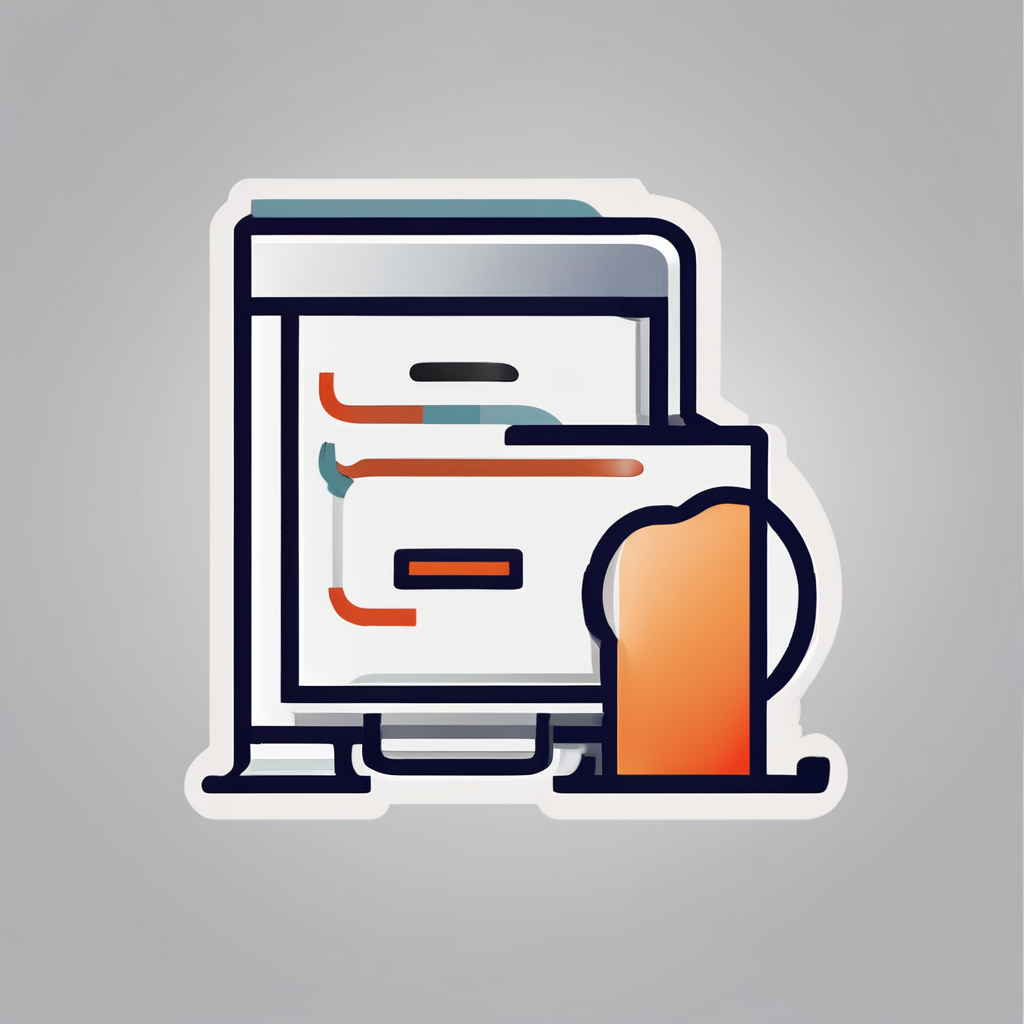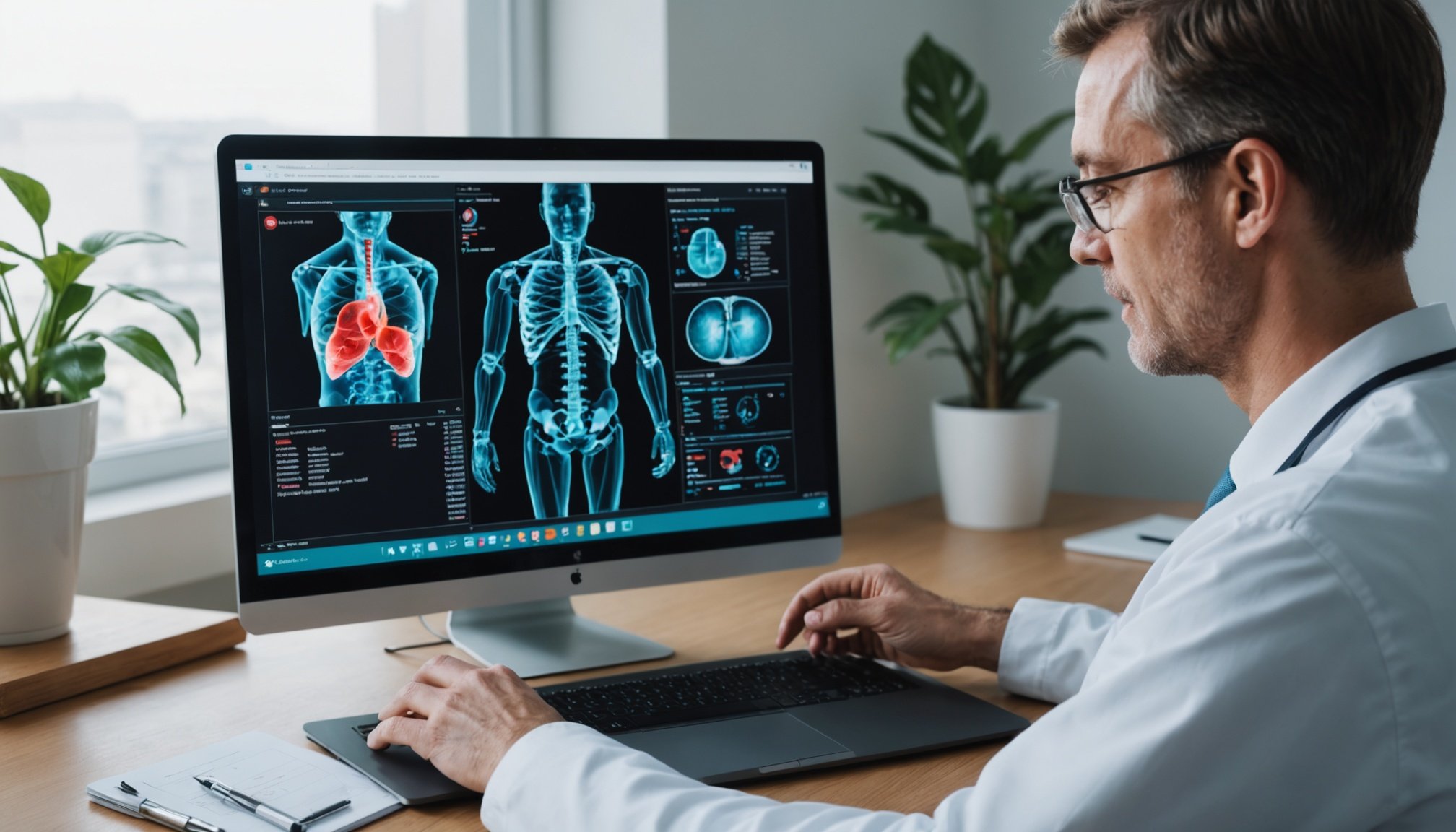Overview of AI in Remote Patient Monitoring
AI in healthcare has revolutionised how we approach remote patient monitoring, offering innovative solutions to modern medical challenges. These advanced intelligent systems are designed to collect patient data in real-time, allowing healthcare providers to make informed decisions quickly. These systems often utilise sophisticated algorithms to analyse patient information, predicting potential health issues before they become critical.
The evolution of AI technologies in healthcare has been remarkable, with significant breakthroughs occurring over the past few decades. Initially, AI applications were limited but focused on diagnostics and administrative tasks. However, recent advancements have propelled AI into new realms, such as remote patient monitoring, demonstrating AI’s potential to enhance patient care outcomes.
Topic to read : Revolutionizing renewable energy: how ai innovates management for optimal efficiency
In today’s healthcare landscape, remote monitoring holds paramount importance. With increasing patient numbers and healthcare demands, monitoring systems have become crucial in extending care beyond traditional settings. Patients can now receive continuous attention, ensuring timely interventions and significantly improving the quality of care.
Remote patient monitoring represents a vital shift towards proactive healthcare management. By integrating AI-driven innovations, this technology empowers both patients and healthcare professionals, fostering a more responsive and efficient healthcare environment.
Also read : How product lifecycle management enhances cybersecurity efforts
Case Studies Highlighting AI Success in Patient Monitoring
Exploring real-world AI case studies in healthcare reveals significant innovations and improvements in patient outcomes. These examples illustrate AI’s transformative power in diverse medical contexts.
Case Study 1: Chronic Disease Management
AI has revolutionised chronic disease management by enabling continuous monitoring of patients’ health data. Utilising sophisticated algorithms, AI systems can predict and manage potential health crises before they occur. For instance, diabetic patients benefit from AI-driven glucose monitoring, which adjusts medication in real-time based on current blood sugar levels. Such proactive management not only enhances patient outcomes but also reduces hospital visits.
Case Study 2: Post-Surgical Recovery
In post-surgical recovery, AI technologies have improved patient monitoring systems. By analysing vital signs and other parameters, AI can alert medical staff to potential complications. This timely intervention has been shown to reduce recovery times and improve overall patient well-being.
Case Study 3: Real-time Health Analytics
Real-time health analytics powered by AI enable comprehensive analysis of patient data. These systems provide healthcare professionals with insights into patient status that improve diagnostic and treatment approaches. Feedback from both patients and providers often highlights the increased accuracy and efficiency of these AI-driven solutions.
Lessons from these implementations showcase the remarkable potential of AI to reshape healthcare, marking a new era of innovation and efficiency.
Statistical Evidence Supporting AI in Patient Monitoring
Incorporating AI into healthcare statistics has shown transformative results, particularly in patient monitoring. Initial data suggests that AI-driven systems enhance patient outcomes through more accurate diagnoses and treatment plans. Health systems adopting AI technologies report reduced hospitalization rates and improved recovery times.
When examining the effectiveness of AI, the data trends from early adopters present significant findings. These institutions often experience decreased healthcare costs due to improved operational efficiency and resource allocation. For example, AI’s ability to rapidly analyze patient data can lead to significant time savings and enhanced decision-making processes, providing timely and precise care.
Patient data analysis further underlines AI’s potential. These systems continuously learn and adapt, improving with each data set processed. This dynamic capability contributes to a more personalized and targeted approach to medicine, aligning closely with patient-specific needs.
Regulatory bodies are also weighing in on these advancements, especially concerning data security and privacy. They underscore the importance of secure data handling practices, ensuring that AI technologies comply with stringent privacy laws. The fusion of advanced analysis with robust security protocols sets a promising trajectory for AI’s role in patient monitoring, assuring stakeholders of its safety and efficiency.
Benefits of Intelligent Remote Patient Monitoring
Intelligent remote patient monitoring (RPM) offers transformative advantages for both patients and healthcare providers. Patients experiencing chronic conditions benefit significantly by engaging more effectively in their own care. By utilizing advanced monitoring technologies, patients become empowered to self-manage their health, leading to improved compliance and outcomes. This enhanced engagement supports patients in becoming active participants, ultimately fostering better health management habits.
Healthcare providers also see substantial advantages. The integration of AI in RPM systems allows for enhanced data analysis, offering insights that enable more personalized and timely interventions. This leads to improved healthcare efficiency through precise resource allocation of staff and medical equipment. Providers can prioritize high-need patients without sacrificing the quality of care delivered.
Additionally, RPM systems significantly reduce costs associated with traditional in-person visits. By minimizing hospital readmissions and utilizing AI for predictive patient monitoring, healthcare systems and patients experience substantial financial savings. The shift towards virtual care platforms reduces overhead expenses while ensuring continuous, quality care.
Incorporating intelligent RPM technology thus proves beneficial in not only enhancing patient experiences but also elevating the operational capacity of healthcare providers, demonstrating a profound impact across the medical sector.
Challenges in Implementing AI-Powered Monitoring
Implementing AI-powered monitoring in healthcare poses several unique challenges.
One major issue is technology challenges related to both software and hardware integration. Ensuring seamless communication between AI systems and existing medical equipment can be complex and requires significant expertise. This often involves upgrading outdated systems or installing entirely new infrastructures, which can be costly and time-consuming.
Another barrier to adoption is resistance from healthcare professionals and organizations. Many practitioners are hesitant to trust AI recommendations over their clinical judgement, fearing loss of control. Additionally, organisations may be cautious about the financial investments required for such technology. Resistance is often rooted in a lack of understanding of AI’s potential benefits and how it can enhance, rather than replace, medical expertise.
Patient privacy is a critical concern that demands attention. AI systems collect vast amounts of sensitive data, raising privacy concerns. Ensuring regulatory compliance with laws such as the General Data Protection Regulation (GDPR) is essential, involving stringent data protection measures. Transparent communication with patients about how their data will be used is crucial in building trust and mitigating privacy issues. Addressing these challenges is key to successful implementation.
Future Trends in AI and Remote Patient Monitoring
The future healthcare technology landscape is being reshaped by significant AI advancements that complement remote monitoring. These emerging technologies are poised to revolutionise patient care, ensuring timely interventions and enhancing outcomes. For instance, AI-enhanced wearable devices can monitor vital health metrics in real time, providing continuous data streams to healthcare professionals. These tools predict potential health issues before they become critical, significantly reducing emergency interventions.
As for healthcare predictions, the evolution of AI tools in medicine is expected to bring virtual care to the fore. Telemedicine, already gaining traction, will likely become a cornerstone of patient management. Virtual consultations will enable patients to receive quality care without the need for in-person visits, reducing barriers to access.
Moreover, remote patient monitoring will incorporate sophisticated AI algorithms capable of learning from vast datasets. This will facilitate personalised treatment plans, based on individual health profiles, allowing for a more tailored approach to care. Such advancements are critical in managing chronic conditions, where continuous and adaptive monitoring is essential.
In this ecosystem, AI acts as both a diagnostic and predictive tool, setting the stage for a transformative era in healthcare delivery.
Impact on Patient Outcomes and Healthcare Efficiency
The integration of AI into healthcare frameworks has shown remarkable improvements in patient outcomes and quality of care. By employing advanced algorithms, hospitals can predict patient deterioration early, ensuring timely interventions and enhancing patient safety. For instance, AI-assisted diagnostic tools have reduced human error, leading to more accurate diagnoses and improved patient care.
Metrics such as reduced hospital readmission rates and decreased treatment durations underscore the significant enhancement of healthcare efficiency. These metrics are crucial for tracking the performance and quality of care, offering tangible evidence of the benefits AI brings to healthcare systems.
Experts advocate for the thoughtful integration of AI, suggesting that it should complement rather than replace human judgement. AI can handle data at scales impossible for humans, ensuring clinicians focus on delivering personalised care. This collaboration between technology and medical professionals could enhance patient outcomes, leading to healthcare efficiency.
Real-world examples further illustrate healthcare advancements, where AI’s predictive analytics have optimised resource allocation, ensuring patients receive timely care. By analysing vast datasets, AI tools help predict disease outbreaks, enabling proactive measures. Such innovations mark a transformative shift in the healthcare sector, enhancing the overall quality of care provided.






